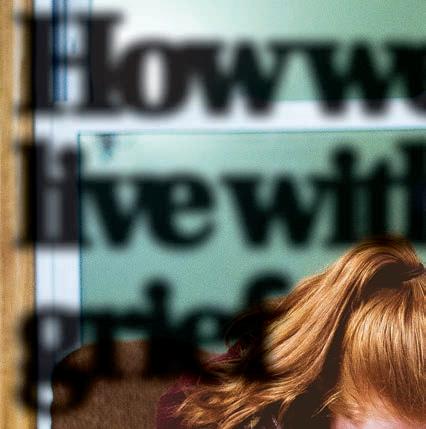
1 minute read
Science & Wellbeing
In her book on grief, Before and After Loss: A Neurologist’s Perspective on Loss, Grief, and Our Brain (2018), written after the death of her husband, neurologist Lisa Schulman notes that seeing the psychological aspect of grief as a form of open-ended brain-altering trauma is not common in most Western cultures, which places emphasis on “moving forward”.
In fact, Lisa Schulman argues, Western culture considers grieving a nite process which ends with ‘closure’, like a book, a movie, or TV series, with its season or series nale.
Advertisement
‘Closure’ entails “moving on” and “letting go” of the dead, ceasing the habits that bind us to the departed, summing up their lives and their relationships with conclusive insights that no longer invite brooding re ection, ambiguity, or regrets.
‘Closure’ delineates the line between healthy and unhealthy grief: without closure one is said to be stuck between the world of the living and the world of the dead, unable to ‘let go’.
In her book Closure: e Rush to End Grief and What it Costs Us (2011), sociologist
Nancy Berns proposes that closure is an arti cial, socially structured emotion that o ers a false promise of completion and resolution. Unlike books and movies, grief is open-ended, without an expiration date; it leaves a permanent existential wound on one’s psyche: “grief never ends, and it is a natural response to loss.” e psychological connection with the dead provides recourse and allows integration of loss into the narrative of one’s life. For a long time, psychologists and psychiatrists viewed grief as a journey — a gradual process consisting of ve stages: denial, anger, bargaining, depression, acceptance. But there is no chronology or linearity in grief; it does not










